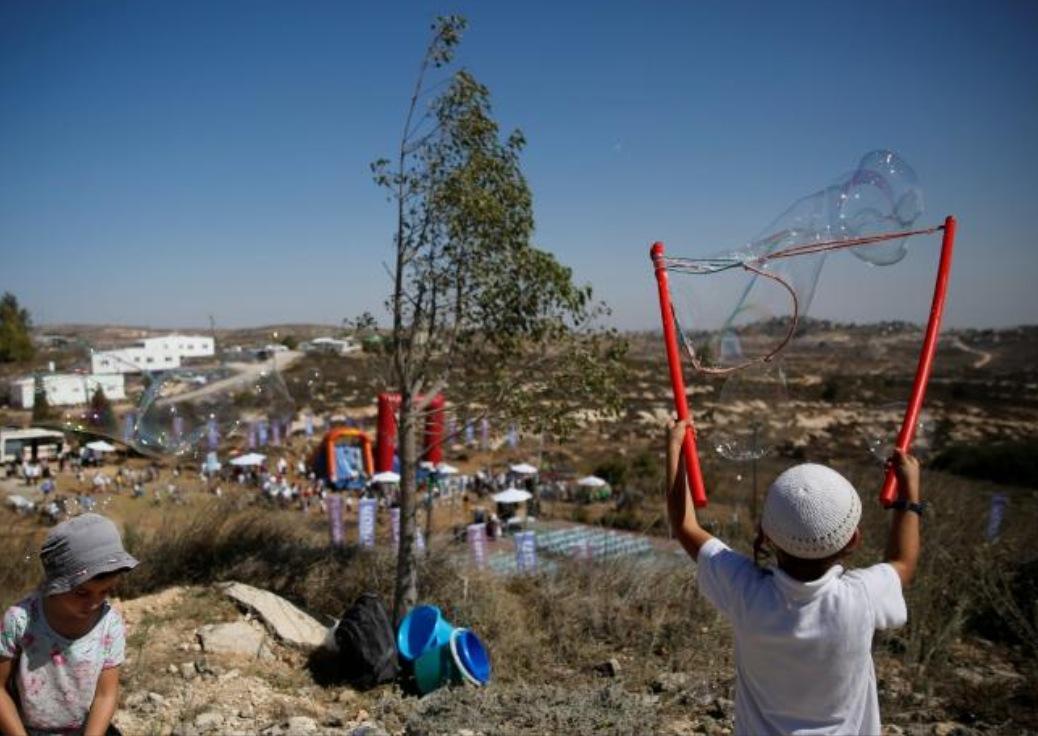US state department condemns Israel's plans to ‘legalise’ West Bank outposts
Israel's parliament gives preliminary go-ahead to bill that would legalise settler homes built on private Palestinian land

Your support helps us to tell the story
From reproductive rights to climate change to Big Tech, The Independent is on the ground when the story is developing. Whether it's investigating the financials of Elon Musk's pro-Trump PAC or producing our latest documentary, 'The A Word', which shines a light on the American women fighting for reproductive rights, we know how important it is to parse out the facts from the messaging.
At such a critical moment in US history, we need reporters on the ground. Your donation allows us to keep sending journalists to speak to both sides of the story.
The Independent is trusted by Americans across the entire political spectrum. And unlike many other quality news outlets, we choose not to lock Americans out of our reporting and analysis with paywalls. We believe quality journalism should be available to everyone, paid for by those who can afford it.
Your support makes all the difference.The US has described attempts by Israeli politicians to pass a bill allowing Jewish settlers to remain in the occupied West Bank as “troubling”, as the proposal has been given preliminary approval by the Knesset.
“We are deeply concerned about the advancement of legislation that would allow for the legalisation of illegal Israeli outposts located on private Palestinian land,” State Department spokeswoman Elizabeth Trudeau told a briefing on Monday.
On Wednesday, pro-settlement nationalists that dominate Prime Minister Benjamin Netanyahu's coalition government voted to move the bill through the Knesset. "A nation cannot be an occupier in its own land," Justice minister Ayelet Shaked of the Jewish Home party said ahead of the vote, berating opposition parties for standing against it.
The controversial bill focuses on the outpost of Amona, created in 1995 and currently home to approximately 200 people. Outposts, which are not authorised by the Israeli government and are built on private land owned by Palestinians, are more contentious than approved settlement building, although any Israeli construction over the 1967 Green Line is viewed by the international community as illegal.
In December 2014, the Israeli High Court ordered the state to completely evacuate and demolish Amona within two years.
The new bill – the first of its kind – faces opposition from several quarters, not least Mr Netanyahu. A ministerial committee defied the Prime Minister on Sunday by voting to back the bill for debate in the Knesset. It is still at least three votes – and possible amendents watering down proposals – away from becoming law.
Israel's attorney-general, Avichai Mandelblit, called the bill “legally flawed” in its current form, saying that it contravenes private property law and does not tally with Israel's international legal commitments. If enacted, it is thought it could pave the way for similar bills legalising dozens more outposts.
As such, the current bill on the fate of Amona represents “an unprecedented and troubling step that's inconsistent with prior Israeli legal opinion and also breaks longstanding policy of not building on private Palestinian land," Ms Trudeau said. “We hope it doesn't become law.”
The US is broadly committed to a two-state solution to the Israeli-Palestinian conflict, although President-elect Donald Trump has not clearly signified whether his administraton will change tack on the issue of settlement building.
Israeli settlements in the West Bank are viewed as one of the major stumbling blocks to any lasting peace deal.
Reuters contributed to this report
Join our commenting forum
Join thought-provoking conversations, follow other Independent readers and see their replies
Comments